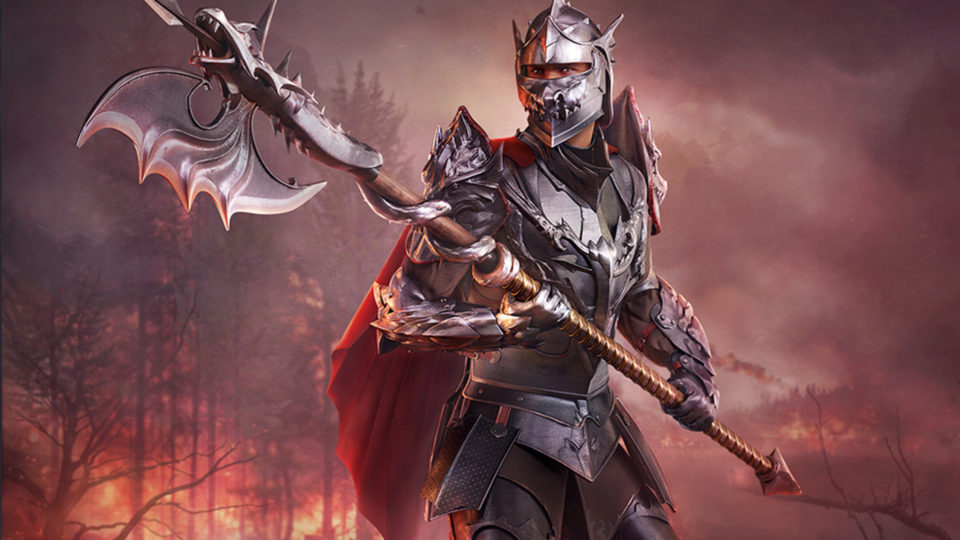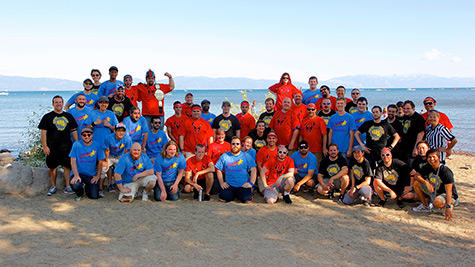Plarium started out humbly enough in 2009 on Russia’s social networks with only a poker game and a farming game to its name. Today they are the #1 hardcore game developer on Facebook and a major force on mobile that is continuing to grow quickly. How did Plarium get from one to the other? It all comes down to its content, its employees and its players – with a dash of marketing thrown in.
main
ContributionsDevelopmentGame DevelopmentIndieOnlinePostmortem
Point Perfect: a Casual Game for a Hardcore Gamer
As a developer, you want the world to think that you are a thriving company with half a dozen employees destined for greatness in the indie game scene. But Bobby Patteson, the owner and CEO of the Toronto-based company Highcastle Studios, decided to tell the truthful story of making a game that is not on Steam’s top 100 sellers list. Bobby is a former male fashion model, an inventor, an artist, a computer game developer, and in between all that, you can find him doing all the jobs that nobody else wants to do (for the minimum wage, he adds). Highcastle Studios is literally one guy making games with a little help from Jonathan, an intern from last summer, and music commissioned by Matthew Joseph Payne. Bobby defines his goal as “to make weird games that explore new ways to play and interact”. Point Perfect is his first experiment.
Test Your Skills While a Friend is in a Starcraft or LoL Match
The idea of Point Perfect comes out of my love for real-time strategy games and the eSports culture that surrounds it. I noticed that there can be a lot of downtime between games of Starcraft or League of Legends. I thought - wouldn’t it be great if there was a casual game to test your skills while waiting for your friend to get out of their 40-minutes game? And so the concept for Point Perfect was born: the casual game for the hardcore gamer.

At the time, I had a passion for designing games, but absolutely no idea of how to program. So naturally I gravitated towards Gamemaker Studio to build my game. Because of the technical limitations of the engine, I decided to go for retro aesthetics. What is more, I always felt that Point Perfect should have been thought up sooner, and belonged in the 80’s with Tetris and Pong.
Making Fun of Losing the Game
There were many changes and updates of the game during its development. The original idea was to have the player only avoid obstacles with the mouse pointer. It dawned on me, however, that the game would be too similar to free titles that people could play online. There just wasn’t enough depth in mouse-avoidance alone. So I decided to allow the player to fight back by drawing boxes around enemies and blast them to bits with a laser from your mother-ship.

This was the turning point and the most exciting part of doing the game’s design, but it also created some new issues and concerns. After initial playtests, it was evident that people were having extreme difficulty with the two competing tasks of both avoiding obstacles and aggressively selecting enemies to destroy. However, I also noticed that players were keen to figure it out, and there was a strong “just one more try” element to the game.

After a while, the player would adapt and be able to understand the gameplay, but the initial learning curve was very steep. That’s why I decided to add probably the most controversial element to the design: “making fun” of the player for losing! After all, the players who might get offended by this are not the people who would be playing my game in the first place. So the decision came to embrace the difficulty of Point Perfect and try to get the player to laugh about it.
Graphics Define Audience Range
I am very happy with my final product, but there are some things I may have done differently a second time around. The most notable is the importance of the game’s graphics to appeal to all audiences.
It’s very easy for a game to be discriminated because of the graphic design. There’s so much depth and content in Point Perfect, and it breaks my heart when I hear things like “is this a Flash game?” or “this should be free”. Believe it or not, it’s also very easy for the media to have the same opinion based on a first glance. The retro look fits my personal taste and vision for Point Perfect, and while there are many gamers who love it, there are also many demographics that I have found despise this art style, unfortunately. Maybe a better fusion of old and new would have made a difference in making my game more appealing to different audiences.

Point Perfect was picked up by a publisher, Plug In Digital, and distributed over all the major online stores such as Desura, Humble Store, and Steam on July 17, 2014. It has quickly gained the reputation of one of the hardest PC games out there and has been somewhat of a cult hit with YouTube celebrities because of its unique design and crazy sense of humor.
Point Perfect is now available only for Windows PCs, and Bobby might make it MAC and Linux compatible in the future.
Studio Spotlight
5th Planet Games: Building with Passion
When a person has a passion for gaming and the motivation to do something with that passion, great things happen. Such is the case with 5th Planet Games. The “studio” was, at first, not even a studio. It was just four guys who played games together. Slowly, they warmed to the idea of making their own games - games they would enjoy playing themselves. This idea drives them forward each day. In the beginning, 5PG took a chance by launching a hardcore game on Facebook at a time when it was believed these games would not “work” there. In May 2010, they proved everyone wrong when their first title, Dawn of the Dragons, became a Facebook hit. 5PG believes they create social games that are fun and engaging for all kinds of gamers, from hardcore or casual.
Life at 5PG
Since Dawn of Dragons, the company grew from 4 to 55 people, but they still all share a passion for games. In fact, it is such an important trait that they look for it in all new hires. “Does somebody really love gaming and really love their work?” asks Robert Winkler, co-founder and CEO. “Do they believe in what we’re trying to do and are they willing to go the extra mile to get the job done? These are intangible traits, but very important to the kind of culture we are trying to build.” He jokes that having “insane skills in whatever role you’re applying for” is helpful, too.
Shared passion makes it easy for the team to work collaboratively. All ideas are considered and encouraged, regardless of who it came from. Even when there are disagreements, they are quickly taken care of. “Everything we do always comes back to the premise of ‘Is this the right thing to do for our player base and community?'” says Winkler. “It’s usually pretty cut and dry when you look at things that way, so that helps resolve most disagreements or difficult decisions.”
Creating Outside the Norm
At the time of Dawn of Dragons, hardcore games were not successful on Facebook, so why did 5PG take the risk? Simple - these were the games they wanted to play. 5PG games reflect that shared passion through the gameplay, storylines, and artwork. The amount of work involved can be a problem, but they enjoy it regardless. “We are creating these whole worlds that players are asked to invest themselves in, so we have to make them seem as real and fantastic as possible,” says Winkler. “It’s not like a casual game, where you can design a whole game around one or two simple mechanics - there’s a lot of layers to our games, and they take time to flesh out, but in the end, we feel it’s worth it.”
5PG added another challenging genre to their portfolio: Digital Collectible Card Games. According to a report by the Casual Games Association this is one of the highest monetizing social games categories. They update these types of games by creating new cards with new mechanics. “With each new release, we risk that a new mechanic has a different effect on the game than originally intended, or that it severely alters the way the game is played,” says Winkler. While this can be a challenge, Winkler says it also creates unexpected opportunities for players, causing them to think up new strategies. He spoke more on this topic during a session at Casual Connect.
A Lasting Community
The community surrounding and supporting their games is key to 5PG’s success. “One of our guiding principles is building games that enable players to benefit from cooperation. Helping fellow players rather than rewarding payback and the demise of fellow players,” says Winkler. To do this, they incorporate certain ideas into their games promoting this type of gameplay, such as guilds and alliances. The team shows a lot of respect to the team members who interact with their community the most, and puts a lot of emphasis on supporting their large community. “Community interaction is so important to our games not only because it makes them more social, but because it depends on a player’s engagement and keeps them engaged for longer,” says Winkler. “We even fly in a group of players every month or so to hold player councils, where we can pick their brains directly on what new features they’d like us to implement, how they want to see the games evolve, and other ways to improve the games.”
With such a focus on the community, one sees why the fans stick around, but Winkler points out that there is another reason: “Our Games-as-a-Service approach, we are constantly rolling out new features and content so the gameplay never gets stale or boring.” Even Dawn of the Dragons, launched over three years ago, receives regular new updates. 5PG also takes player feedback into consideration when looking into new content. “We take in feedback - both constructive and not so constructive - and iterate on our designs and content based on this feedback,” says Winkler. “We find that our players understand the games at least as well as we do and more often than not, their suggestions are right on the mark.”
Find out what 5th Planet Games is up to now through Facebook and Twitter.









